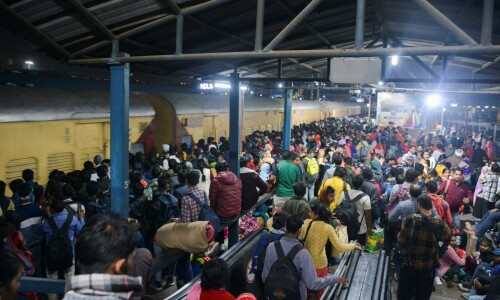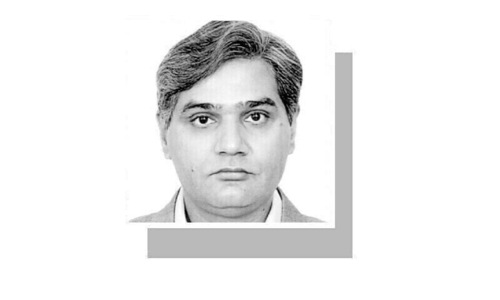
MANILA: The award-winning head of a Philippines news website known for its tough scrutiny of President Rodrigo Duterte was arrested on Wednesday on libel charges, the latest in a series of legal cases against perceived adversaries of the government.
Maria Ressa, chief executive of Rappler, is accused of cyber libel over a 2012 article, updated in 2014, that linked a businessman to murder and trafficking of humans and drugs, citing information contained in an intelligence report from an unspecified agency.
National Bureau of Investigation officers escorted Ressa through a phalanx of media that poured into the Manila office of Rappler when news of the agents’ arrival went viral on social media.
“People should know that the line has been crossed,” Ressa told reporters, adding she would seek bail.
The justice ministry filed the case on behalf of the businessman, who denies any wrongdoing.
Ressa was among several people named “Person of the Year” by Time Magazine in 2018 for leading what it said was Rappler’s “fearless reporting on President Rodrigo Duterte’s propaganda machine and extrajudicial killings”, referring to his bloody war on drugs.
Rappler has borne the brunt of what activists say is a state-sponsored campaign to intimidate Duterte’s opponents by hitting them with legal measures, or subjecting them to a torrent of online hate whipped up by social media “influencers”, some of whom held government posts.
Presidential spokesman, Salvador Panelo, said a crime had been committed, a court had found probable cause and Rappler was not being penalised for its reporting.
“This is nothing to do with freedom of expression or freedom of the press,” he told news channel ANC.
London-based right group Amnesty International said the charges were trumped up and “brazenly politically motivated”. Ressa’s arrest is the latest problem Rappler has faced.
Its operating licence was rescinded in 2018 over alleged ownership violations, and it is also dealing with a case involving alleged tax evasion. Both cases are going on.
“These cases are intended to intimidate us,” Chay Hofilena, Rappler’s investigative editor, told media. “We know that’s the intent, we are not buckling.”
Rappler’s reporters are regularly threatened by elements of Duterte’s online support base, part of what Rappler’s investigations say is an organised “weaponising” of the internet by the government. The government denies that.
For his part, Duterte has said he does not need help from online trolls, and insists he has never punished anyone for criticising him.
He has called Rappler a “fake news outlet”, and even suggested it might be linked to the US Central Intelligence Agency.
The National Union of Journalists of the Philippines called Ressa’s arrest “a shameless act of persecution by a bully government”.
Published in Dawn, February 14th, 2019













































